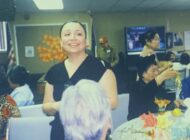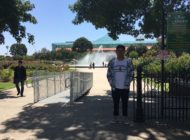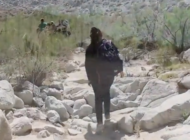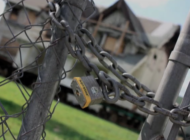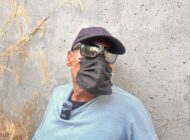By CYNTHIA RENDÓN
EL NUEVO SOL
Guatemala is just one country away from from the United States, yet possibly hardly anyone remembers that there was decades-long war in Guatemala that ended just 14 years ago, and that as a result, hundreds of thousands of people died.
As a U.S.-born person with parents and family who are Guatemalan and now live in the U.S., conversations at family gatherings would naturally shift to what they remembered about their time growing up in Guatemala. Considering that the war is often to have said started in 1954 and end in 1996, different generations alike are able to recall events of the civil war.
Does this mean that all Guatemalans share a collective memory? Not exactly. A professor of Central American Studies at California State University, Northridge (CSUN), Dr. Alicia Estrada, notes that the commemoration of the Civil War in Guatemala can vary from community to community. The era between 1970 and 1983 became known as the worst for human rights violations in Guatemala, where at least 50,000 people died in the violence, and 200,000 Guatemalans fled to neighboring countries. This means that these +200,000 people reside somewhere other than Guatemala, including the United States. This displaced or diasporic community is particularly interesting because they are not only physically separated from the land that holds the harrowing memories of war, but they also took the opportunity to start their lives over in a new land.
There, the million dollar question emerges: Does the geographical distance result in emotional distance?
___________________________________________________________________________________________
According to Wesleyan University history professor, Dr. Renee Romano, who specializes in historical memory, “A single person’s memories of her life and experiences can give her a sense of where she has come, who she is, and can guide her decisions about the future.” This holds especially true for Luis Rendón, a 55-year-old native of the bustling Guatemala City, and Leticia Aranda, a 79-year-old Chiquimula-born woman, the two individuals interviewed to gain a more personal and intimate perspective on the decades-long Civil War. Though about 30 years apart in age and part of two different generations, the civil war still lived rampant in their memories.
Dr. Estrada noted that the civil war in Guatemala, due to its extreme length, began at different times for different people. The coup of ’54 may have initiated the war for some citizens, while for others the war may have

Native women survivors during the rule of President Rios Montt (1982-83) demonstrate in Guatemala City on June 6, 2001. The protester, along with human rights groups, filed a lawsuit against Montt for genocide. AFP PHOTO/Fernando Morales
started in 1982, when General Efrain Rios Montt, who is sometimes likened to Chile’s Pinochet, was named President of the military junta. Rios Montt, in particular, is known for continuing the bloody campaign of torture, forced disappearances, and “scorched earth” warfare (Read the CEH’s “Memory of Silence” to learn more about the State’s gruesome involvement in the Civil War).
THE CREEPING THREAT OF THE WAR
For Luis Rendón, the war began in his adolescence, when he was about 14-years-old. Though the war had already officially been in action for 15 years, he recalls that the first time he saw the ramifications of the war occurred when he witnessed a guerrilla group burn down a local business, which was an event that sometimes occurred as a “justified reaction” to the violence occurring to the the indigenous population. With that, the buzz about the increasing violence rose in his neighborhood. He recalls hearing conversations among his older friends about the happenings of the war at the local watering hole, the cancha de fútbol. Politics still didn’t interest him, as he was still too young, he states with a shrug. But he notes that most of his friends, though not involved in combat yet, were in favor of the guerrilla forces. He adds that they believed the guerrilla forces defended el pueblo, they they were with them. Luis himself found it difficult to believe his friends, however — he thought, if the guerrillas defended them, why were they blocking roads and burning down businesses? On the other hand, he also saw the State’s handling of the war as very harsh, as he saw his peers being forced to join the military.
“All of a sudden the military would come by the neighborhood and they would take you . . . your age didn’t matter to them.” (Translated from Spanish)
Listen to Luis recall his years of adolescence, when many of his peers were taken away by the “Pájaro Azul.”
[audio:http://www.elnuevosol.net/wp-content/uploads/AUDIO-1.mp3]
For a young teenager amidst the violence and without a side to truly and adamantly support, Luis did was many others in his situation did, try to go on with his everyday routines.
During the same year, 1968, about 110 miles away from Guatemala City, in a completely different state, lived Leticia Aranda with her husband, Gustavo, and four young children. It was that same year that Letty, as her friends and family affectionally call her, first began to witness the ramifications of war.
When asked if the civil war touched the most intimate aspects of her life or if it just passed her by, she responded strongly, with a close-to-ardent tone that, yes, the war did affect her life because they, los judiciales, killed her husband.
Letty’s husband was often away from home because of work. He worked for what would be the equivalent of Caltrans in California, and only came home every two weeks because of the heavy travel that was part of the job. Gustavo was not part of the combat between the state and guerrilla forces. The interaction between Gustavo and guerrilla forces was inevitable, though, as he often passed them by on the mountain where he was assigned to bring water to the work camp.
NO ANSWERS, ONLY QUESTIONS
Letty recalls, looking far off into the distance, that on a day when her husband was supposed come home, he did not. About a week of waiting, worrying, and even dreaming that he had come home, a man from her husband’s job knocked on her door. She greeted him with a sardonic, “¿Y usted mala noticias me trae, o qúe?” In fact, the man did bring her bad news. He informed Letty that the judiciales, the policemen, had kidnapped her husband from the camp where the workers lived and that no one had seen him since. She later learned that the police officers were, in fact, looking for another Gustavo — one possibly with the surname Ramirez, she remembers. And while the culpable Gustavo escaped as the policemen yelled for him, Letty’s husband was taken instead, as he was labeled as an informant who knew the whereabouts and doings of the guerrillas.
Via indirect responses from family friends who worked in the capital of Zacapa, Letty and her family learned that Gustavo had been killed soon after his kidnapping at the edge of the river where he used to collect water to bring to his camp, and that his body was taken to the capital of Zacapa. She emphasizes with the shaking of her head, that these family friends did not explicitly tell her that her husband was killed there, as they themselves would have been killed for telling her so. Rather their responses to her questions were filled with many a cryptic “maybe you should ask ‘that’ other person” or “maybe you should search at ‘this’ location for his body.” It took a year after Gustavo’s disappearance that Letty’s friend’s daughter finally told her that she had seen his body, along with two others.
“I went to search for answers because husband told me to in my dreams.” (Translated from Spanish)
Listen to find out what exactly compelled Letty to search for answers.
[audio:http://www.elnuevosol.net/wp-content/uploads/AUDIO-2.mp3|titles=AUDIO 2]
Despite the fact that for a year she did not know if her husband would ever come back, life had to go on. In the meantime, she had four children under the age of fourteen who needed to eat. And without the breadwinner of the family, Letty had to make it all by herself. In essence, she did the only thing that she could do in order to survive.
Similarly, Luis Rendón also had to go on with his life with unanswered questions. In 1982 he saw more personal repercussions of the Civil War. On a day in the fall, very similar to the day of the interview, he mentions, Luis’ only brother, Amaury Rendón, was kidnapped right in front of his family’s home. Though Luis and Amaury had left Guatemala a few years before to look for better work, Amaury decided to return for his kids and to eventually take them to the United States. Luis recalls that it was definitely the judiciales, who, according to him, were “ladrones” and “asesinos,” who took his brother and most likely tortured him (Read Part I and Part II of the CIA’s Human Resource Exploitation Training Manual (1983) to learn more about the ways in which the police interrogated the people). Luis notes with an incredibly stern expression that the judiciales were equivalent to what we know here as the FBI. They came around their neighborhood at random times and if it appeared as if one had money, they assumed it meant you either sold drugs or did drugs. And considering that Amaury had just come from the United States and had dollars on him, Luis articulates with a low whistle, “Forget it, he was perfect bait.” Neither Amaury’s two young children, mother, father, or siblings, ever saw him again and never heard or were told anything about his fate.
“That time in Guatemala was difficult for us as young people . . . . We had the military and the secret police after us.” (Translated from Spanish)
Listen to learn more about the Judiciales’ methods of obtaining answers.
[audio:http://www.elnuevosol.net/wp-content/uploads/AUDIO-3.mp3|titles=AUDIO 3]
WHO IS TO BLAME?
Letty and Luis knew for a fact that the state, la judicial, was responsible for their loved ones’ deaths, yet neither delved deeper to learn more about their fates. The sentiment of helplessness was mutual — “Nada podíamos

Bills posted along the capital’s central corridor, mostly in Zona 1. These pertain to the 40,000 “disappeared” persons from the civil war. Product Etcetera Photo
hacer.” Their families were not the only ones exclusive to the disappearances. The year 1982 especially saw an upsurge of disappearances with the ascendance of Rios Montt into power. It is, in fact, often stated that the worst of the violence of the Civil War came with Rios Montt’s seize of power (To briefly learn about the other Guatemalan regimes’ ascendance into power refer to this BBC timeline). Ironically enough, however, when Rios Montt came into power, Luis saw that things appeared to be different, that with his command of power came a new style of government dissimilar to anything he had seen before in Guatemala. Unlike the rulers before him, Rios Montt claimed to be a born-again Christian and Luis appreciated that. He even astutely recalls a time, right before his brother’s disappearance, when he had to make a trip down to a government institution to fix some paperwork and witnessing first-hand a brand new way the government conducted business. He attempted to give the government worker dealing with his paperwork a mordida or money to speed up the processing of his papers, as business had always been done in Guatemala — “otherwise your papers would never move.” The government worker incredulously reacted to his bribe with, “¿Me estas tratando de sobornar? Tu sabes que eso no está bueno.” Luis had never seen business conducted by the government so… legitimately and properly — “Me gustó lo que ví.” He figured that this meant a new Guatemala was on the horizon. Just three months later, however, during that same President’s regime, Luis‘ brother was killed as a direct result of Rios Montt’s counterinsurgency campaigns.

The devastating earthquake that struck Guatemala in 1976, killed 23,000 and left a million homeless. Plenty International Photo
This sense of frustration with the government is a recurring theme in both Luis and Letty’s stories about their losses. Frustration with their government officials, their compatriots who refused to divulge information when they knew exactly what happened to their loved ones, and the overall frustration with the state’s handling of the nation’s affairs eventually escalated to a feeling of complete and utter disappointment and defeat. This feeling was specifically manifested in 1976, after the 7.5 magnitude earthquake that hit Guatemala. Luis’ family’s home fell apart and forced them to live at the local basketball court along with several other families who lost their homes. He often saw dead bodies as he walked in his neighborhood and found his family found it difficult to find food. The poverty was rampant. Seeing the government’s failure of dealing with its people at such a devastating and critical time and at such a severe degree prompted Luis to leave. He noted that there was nothing keeping there anymore, as it appeared as though there was nothing left. And though the earthquake did not leave Letty’s house and neighborhood in devastation, as it did in the Capital City, the Aranda family saw that it resulted in a decrease of available work. Her oldest daughter left to the United States to find a better, more lucrative life, and one by one, her family members, including Letty, followed suit.
The earthquake, though not directly connected to the Civil War, did say a lot about the government’s handling of their affairs — the people were put on the back-burner. Just like the Mayans were were put down and vehemently ignored by their government, it appears as it was the same for those victims of the earthquake. In Luis’ words, “The earthquake regressed Guatemala 10 years, at least.” With a natural disaster to deal with while in the midst of a war with the people, he noted, once again with a low whistle, “Forget it, it was a disaster. Tenía que irme. I had to go.” The frustration with his home country’s government continues today. He states that he can’t help but feel a wave of disappointment come over him every time he hears of murders occurring in Guatemala. “Now it’s the gangs over there haciendo muchas problemas.” It seems as though there always seems to be something plaguing the country, according to Luis.
As evidenced by the copious details above, Luis and Letty, though it has been over thirty years since their move to the States, still thoroughly remember the specific events that catalyzed their move to where they now call their home. Could they help it, really? The answer is no. Letty notes that she rarely had a good night’s sleep in Guatemala after she found out the fate of her husband. They lived with the fear that something was going to happen to them. Everything changed, she notes with her eyes tightly shut. “No me gusta recordar de ello, pero hasta me recuerdo de los sueños que tuve durante ese tiempo.” All in all, when something like that happens to you, nothing will make you forget it, making their memory on the vivd events that led them to a better life, still plenty alive today. Their time in Guatemala, however, would not be described as a complete loss. Both Guatemalan-born individuals still very much are proud to say they are Guatemalan. Its land, its people are heralded as being beautiful. Both Luis and Letty make the note of saying that Guatemala is, as it is commonly named, the land of eternal spring, “la tierra de la eterna primavera.” Nostalgia still accompanies them as their interviews were laden with small anecdotes about years past, occurring before and after the war. They note that they were born in Guatemala and that nothing can ever change that, so they refuse to be ashamed of a country that brought them up so strongly, as they really had no choice to whom they were born to and where. They will always be Guatemalans though they call the United States home now — the latter point they attribute to being alive today. “Si no nos venimos, quien sabe lo que los hubiera pasado alla.”
Other related human rights ENS stories:
A Filmmaker’s Mission to Bring Human Trafficking Awareness By Dena Betancourt
Tags: Civil War Cynthia Rendon death disappearances Guatemala historical memory









